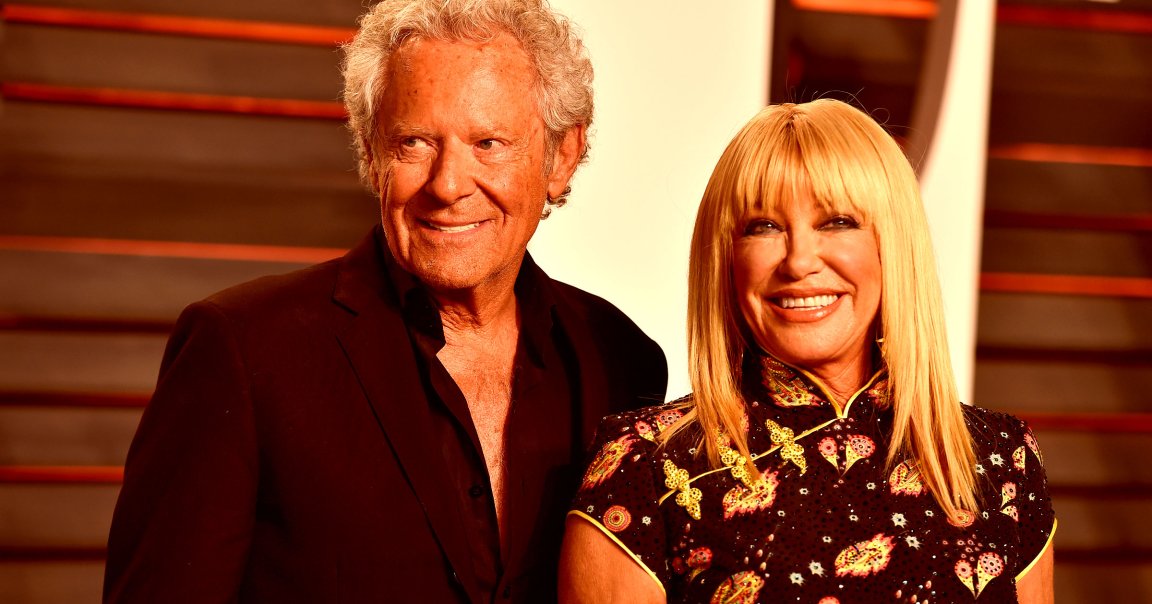
Famed Canadian entertainer and TV host Alan Hamel has announced that he’s created an AI clone of his late wife, actress Suzanne Somers, who passed away from breast cancer at the age of 76 in 2023.
“Obviously, Suzanne was greatly loved, not only by her family, but by millions of people,” Hamel told People. “One of the projects that we have coming up is a really interesting project, the Suzanne AI Twin.”
According to the 89-year-old producer, the beyond-the-grave rendition of his partner of 55 years is indistinguishable from the real thing. Suzanne AI Twin was reportedly trained on “hundreds of interviews,” as well as Somers’ 27 books.
“It was Suzanne,” Hamel told People. “And I asked her a few questions and she answered them, and it blew me and everybody else away. When you look at the finished one next to the real Suzanne, you can’t tell the difference.”
“And I mean, I’ve been with Suzanne for 55 years, so I know what her face looks like, and when I just look at the two of them side by side,” he added, “I really can’t tell which one is the real and which one is the AI.”
Perhaps most strangely of all, Somers’ AI clone was designed to dispense health advice, which was allegedly cleared by doctors. Given the tech’s strong tendency to hallucinate facts, we’ll have to take Hamel by his word that AI Somers won’t be misleading the public — let alone mindlessly shilling health products currently featured on SuzanneSomers.com, where the clone will eventually be hosted.
It’s yet another instance of “resurrecting” the dead with the power of large language model-based tech. Tech companies have been offering to bring the dead back to life for years now, going as far as to provide entire AI-powered seances. All the way back in 2022, months before OpenAI released ChatGPT, a UK startup allowed an AI-based recreation of a deceased woman to “attend” her own funeral.
Why Hamel would want to tarnish his loving memory of his partner of over half a century remains unclear. Is the octogenarian truly enamored by his newfound companion? Is it a matter of refusing to accept his tragic loss? Is he trying to pick up where his late wife left off in selling body butter, hair formula, and makeup on her personal website?
Hamel told People that “it was Suzanne’s idea.” The entertainer said that he and Somers got the idea from futurist and computer scientist Ray Kurzweil, with whom they had been friends for “30-some years.”
“We knew it was coming,” he said, presumably referring to cloning people with the help of AI. “It took decades to happen, but [Kurzweil] knew it was going to happen, and he shared that information with us.”
According to Hamel, Somers thought it was a “very interesting” idea and that it would “provide a service to my fans and to people who have been reading my books who really want and need information about their health.”
Somers’ fans “can come and just hang out with her,” Hamel told People. “They can ask her any questions they want. She’ll be available 24/7, and I think it’ll be really wonderful.”
In March, US Weekly reported that Hamel had teamed up with humanoid robotics company Realbotix to create a “digital twin,” suggesting he may have also been interacting with a robotic version of his late wife. An image of a robot shared by the publication at the time doesn’t even have a passing resemblance to Somers, leaving the possibility that the company has been working on a separate robot we have yet to see photos of.
More on AI clones: CEOs Are Creating AI Copies of Themselves That Are Spouting Braindead Hallucinations to Their Confused Underlings